Smart City and Innovations
Curiosity Lab partner Brodmann17 has joined the 5G Open Innovation Lab
Published
3 years agoon
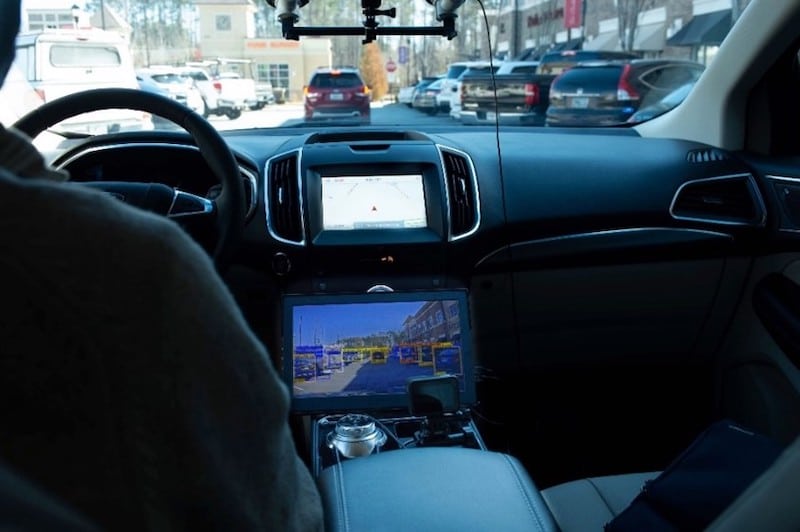
Brodmann17 Joins 5G Open Innovation Lab Following Successful ADAS Development in Peachtree Corners’ Real-World Smart City Environment
- Headquartered in Israel, Brodmann17 has developed Advanced Driver Assistance System (ADAS) technology which saves 95% of compute power enabling it to work on the edge
- Brodmann17 used Curiosity Lab’s Level 3 autonomous test vehicle to test its state-of-the-art software-only perception technology for assisted driving in real-world conditions – leveraging critical data generated at the city
- A reflection of numerous Israeli developers and technology startups flocking to the “Silicon Orchard” region to prove out new technologies in a live smart city and launch into the North American market
Peachtree Corners – one of the nation’s first smart city environments powered by real-world connected infrastructure and 5G – today announced Curiosity Lab partner Brodmann17 has joined the 5G Open Innovation Lab (5GOILab) after several months of successful tests of its state-of-the-art Advanced Driver Assistance System (ADAS) technology in the city. In June 2021, Israeli-based Brodmann17, added their technology to Curiosity Lab’s Level 3 autonomous test vehicle to further develop and prove its software-only perception technology for assisted driving in real-world conditions.
“Our partnership with the City of Peachtree Corners and our ability to test and develop our technologies in a real-world environment, along with real connected infrastructure and data analysis, has been invaluable. In addition, being part of 5GOIL and Peachtree Corners has helped us forge valuable relationships with partners like T-Mobile that benefit our long-term business objectives. 5G-enabled technologies open the door to a wide variety of new use cases, and we feel strongly that hybrid cloud-edge solutions play a critical role in the future of the automotive industry.” – Brodmann17 Co-Founder and CEO, Adi Pinhas
In October 2021, the company joined the Seattle-based 5GOILab, bringing its technology to corporate partners Accenture, Dell, Intel, Microsoft and T-Mobile. The 5GOILab is an ecosystem designed to make it easier for innovators, global platforms and enterprises to collaborate using open platforms and markets to develop, test and deploy new use cases and innovations for 5G and 5G-enabled technologies.
“Brodmann17 is a perfect example of our commitment in working with talented deep learning engineers to prove out and scale technologies in a real-world smart city. The work Brodmann17 did here is making a global impact, with North American manufacturers now looking to leverage advanced ADAS for their future vehicles. Their addition to the 5G Open Innovation Lab clearly reflects their rising prominence. We’re proud that this level of new collaboration with major technology names was fostered right here in our ecosystem – reflecting why so many international companies have been flocking to the heart of Silicon Orchard.” – Brandon Branham, chief technology officer and assistant city manager of Peachtree Corners
The success of Brodmann17 is another example of numerous Israel-born technology startups that have worked with Peachtree Corners to leverage their differentiated, city-owned smart connected infrastructure and overall technology ecosystem to develop and scale technologies, while creating critical new partnerships and scaling their efforts in the U.S. market.
Earlier in 2021, Brodmann17 also partnered with professional camera design house Rhonda Software to launch a new ADAS camera platform using the Ambarella CV25 edge AI vision processor. The new solution combines a camera feature set with the unprecedented levels of accuracy and performance which addresses the needs of the video telematics sector for increased driver safety and fleet efficiency.
Related
Education
GA Tech, Peachtree Corners Solidify Partnership with First-of-its-Kind Venue
Published
2 weeks agoon
April 22, 2025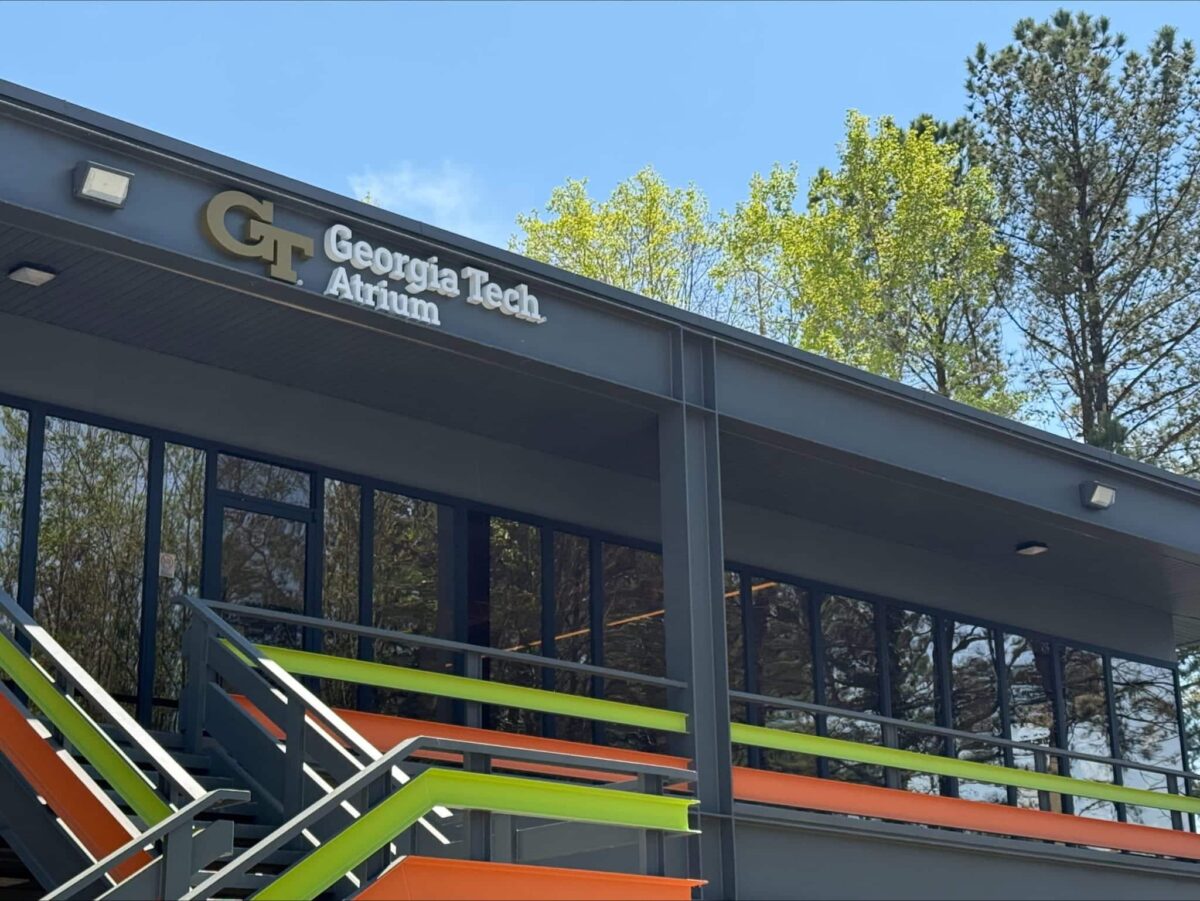
The fortunate 200 or so attendees of the opening of the Georgia Tech Atrium at Curiosity Lab in Peachtree Corners can say they witnessed a significant bit of history. The ceremony highlighted a decade-long partnership between the Georgia Institute of Technology and the city of Peachtree Corners and introduced one of the university’s new global initiatives.
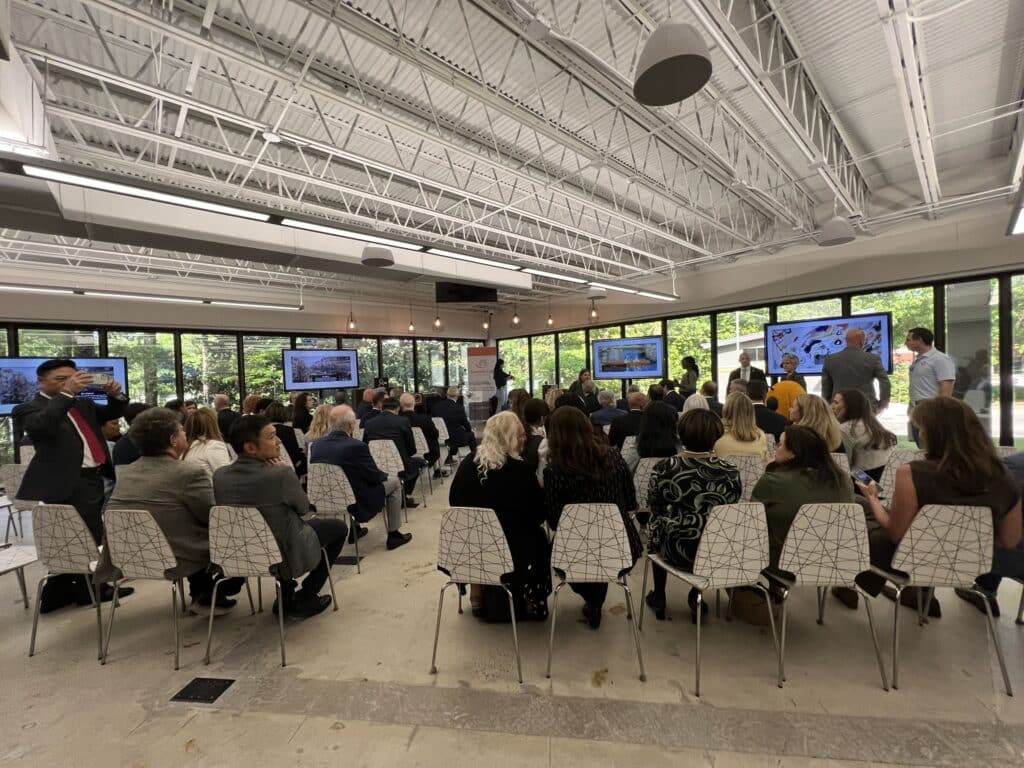
Led by the Center for 21st Century Universities at the Georgia Tech College of Lifetime Learning, each GT Atrium will offer a space for the institute’s faculty, staff, students, alumni and partners to advance their academic and professional interests in the country or region that it serves.
Designed to foster hands-on student research, industry collaboration and technology breakthroughs, they will provide tailored programs, event space, a study abroad base, co-working and co-learning spaces and opportunities to engage and associate with Georgia Tech.
The opening of the GT Atrium in Peachtree Corners is the first of many planned collaborations to come between the school and municipalities throughout the state.
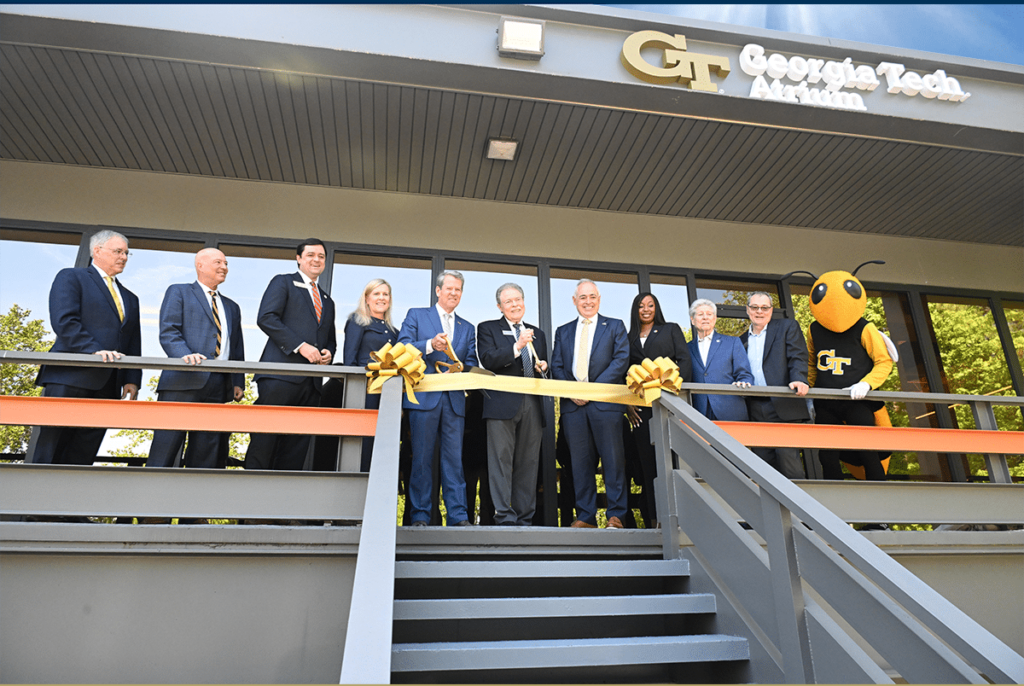
“The Georgia Tech Atrium at Curiosity Lab represents the future of higher education — where learning extends beyond the classroom and where broad community collaboration creates novel opportunities and advances,” said Georgia Tech President Ángel Cabrera.
“This initiative proceeds from a concerted strategy to extend Georgia Tech’s reach, expand access to our resources and expertise and build connections that benefit students and advance research. We’re proud to partner with the City of Peachtree Corners to bring this vision to life.”
Key points
Key points of the event included the Atrium’s role in fostering innovation, upskilling and community engagement. Through this and other initiatives, Georgia Tech aims to double its degree awards and enhance its research impact.
The atrium will offer professional education, K-12 programs and networking opportunities.
The project aligns with the state’s economic development goals, having created 193,000 jobs and $90 billion in investments since 2019.
The event concluded with a ribbon-cutting ceremony, emphasizing the significance of the Atrium in Georgia’s innovation ecosystem.
A collaborative project
With Gov. Brian Kemp, his wife Marty Kemp, Peachtree Corners Mayor Mike Mason, Ga Tech President Ángel Cabrera, Georgia state Rep. Scott Hilton-R, Peachtree Corners and many other politicians and dignitaries present, Gov. Kemp made a point of thanking local Georgia Department of Economic Development board member Jose Perez for his hand in bringing the project together.
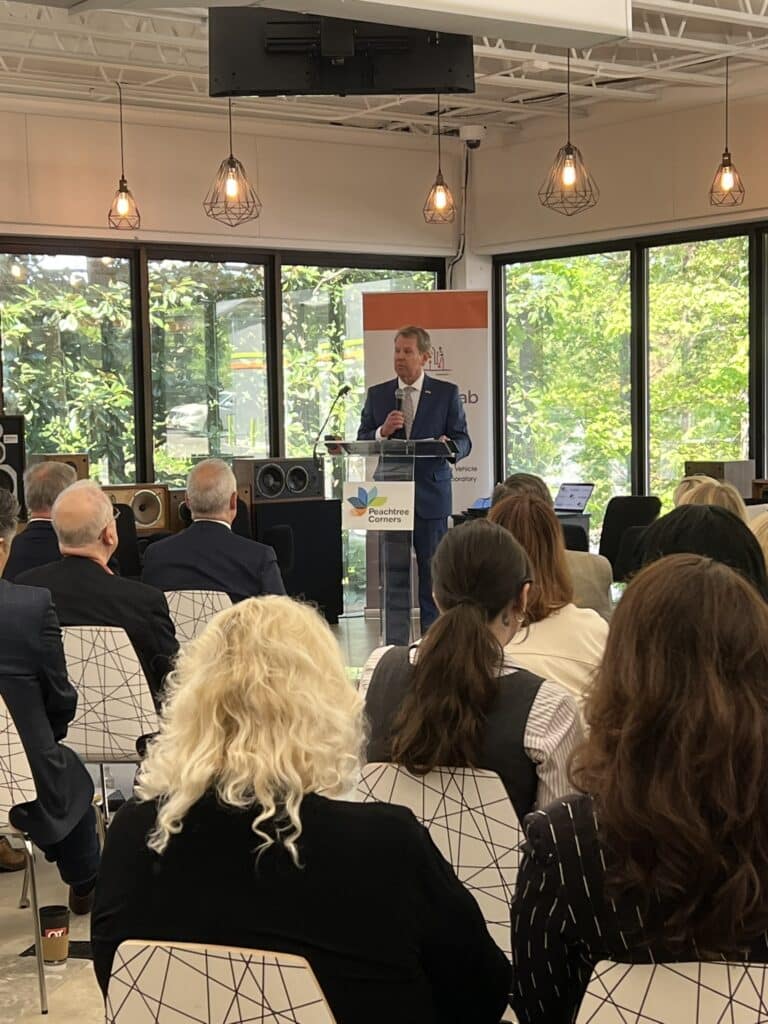
“And I just want to thank Jose Perez — you’re a great champion,” he said. “We appreciate your leadership and your friendship. You know this pro-business environment that we have is essential to Georgia’s success, and it’s why we’ve been named the number one state in the country for business for 11 consecutive years.”
A resident of Peachtree Corners, Perez is the retired President of Target Market Trends, Inc. (TMT), a consulting firm he founded in 2002 to help clients develop market strategies. He also spent 25 years at BellSouth in various management roles and worked as an international consultant with Gartner, Inc.
From 2004 to 2011, he served on the Board of Education and held leadership positions with the National Association of State Boards of Education and the State Charter School Commission.
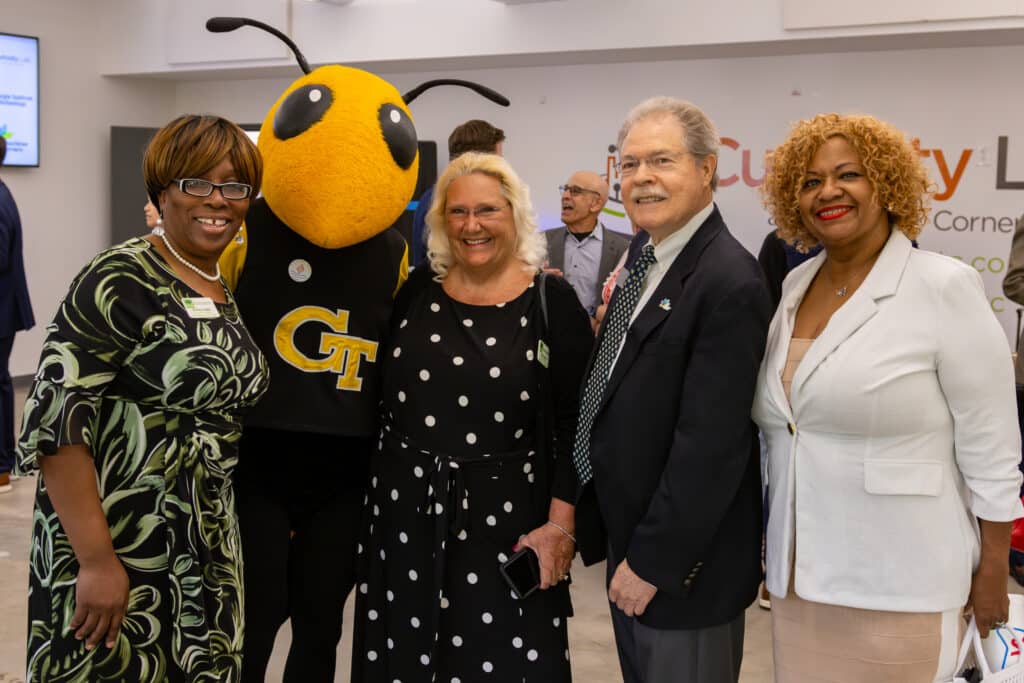
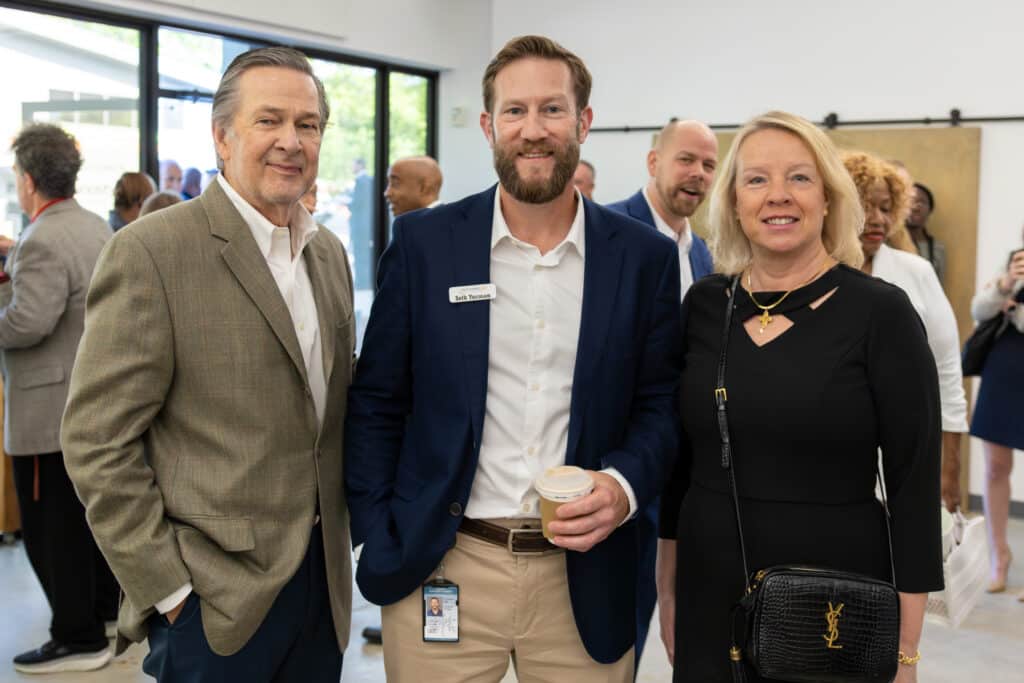
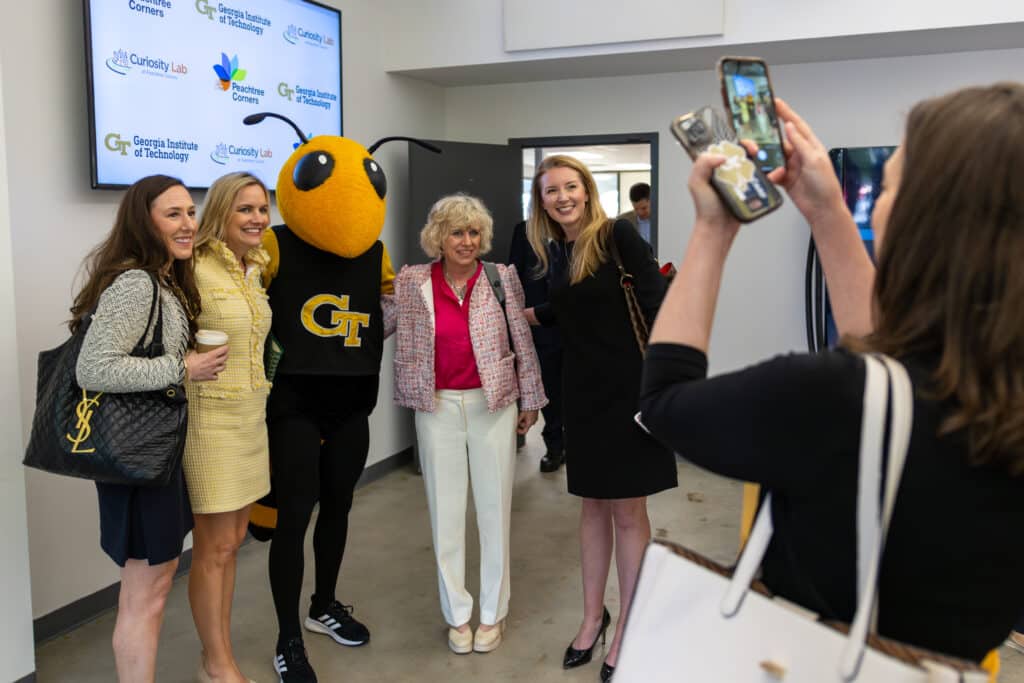
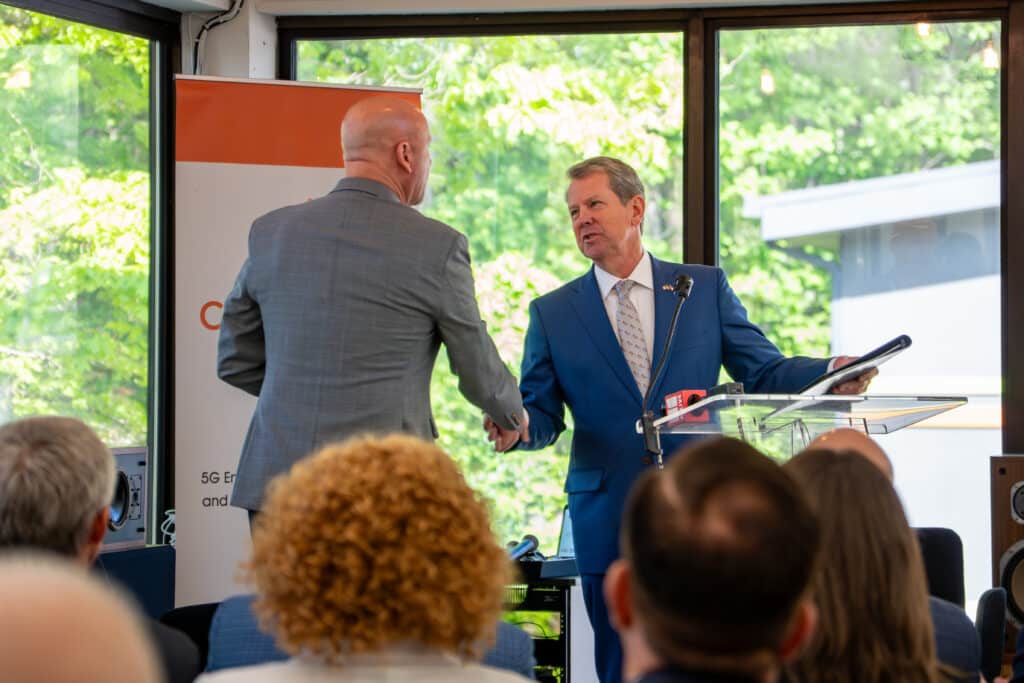
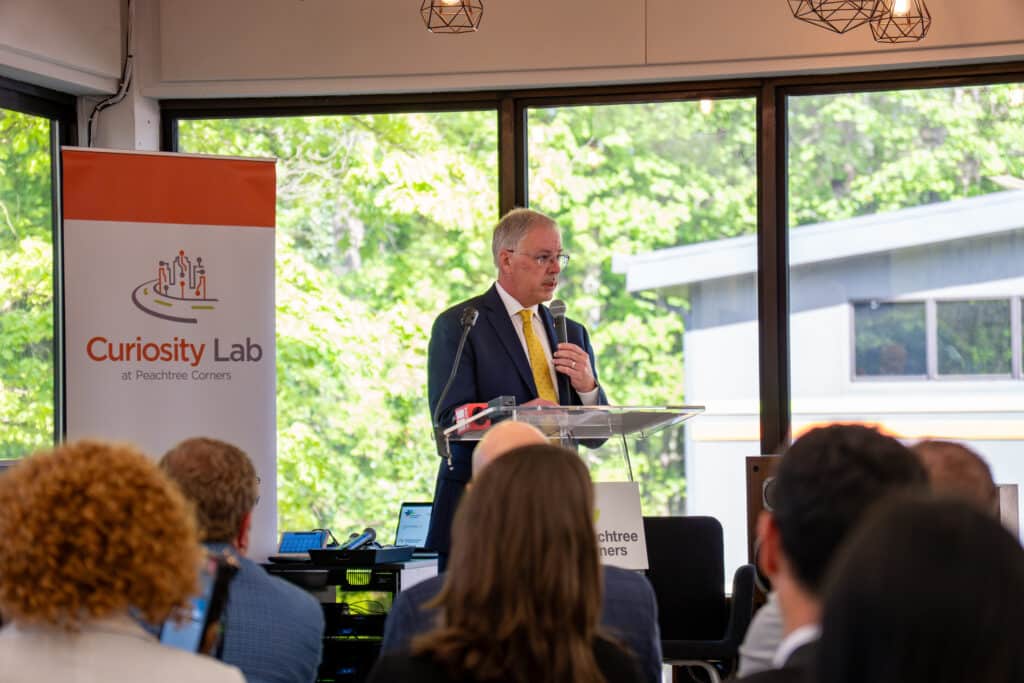
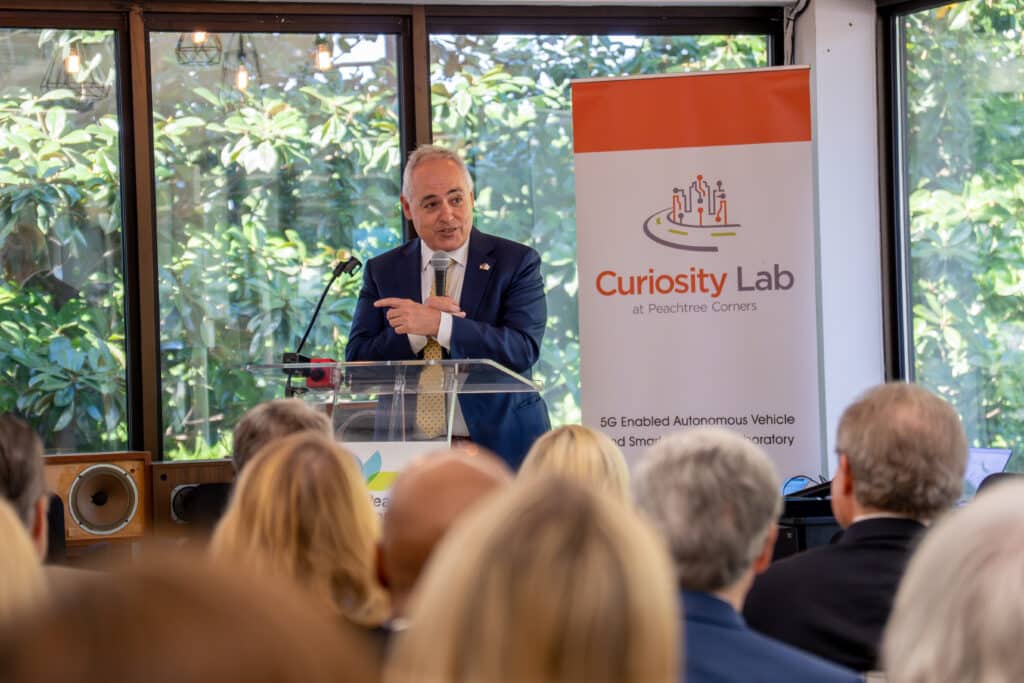
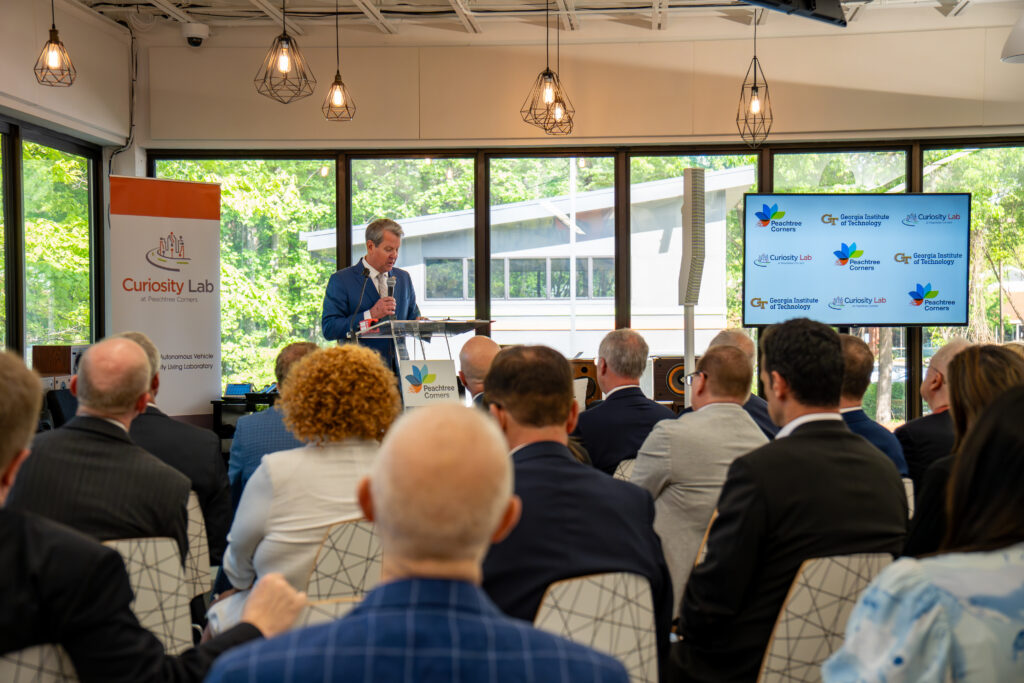
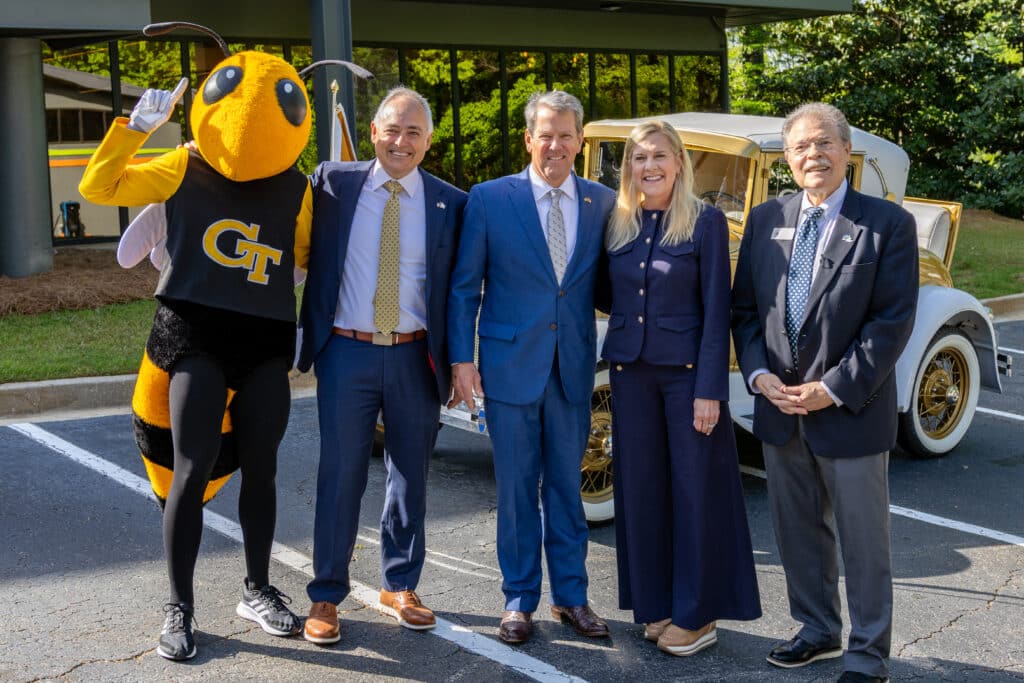
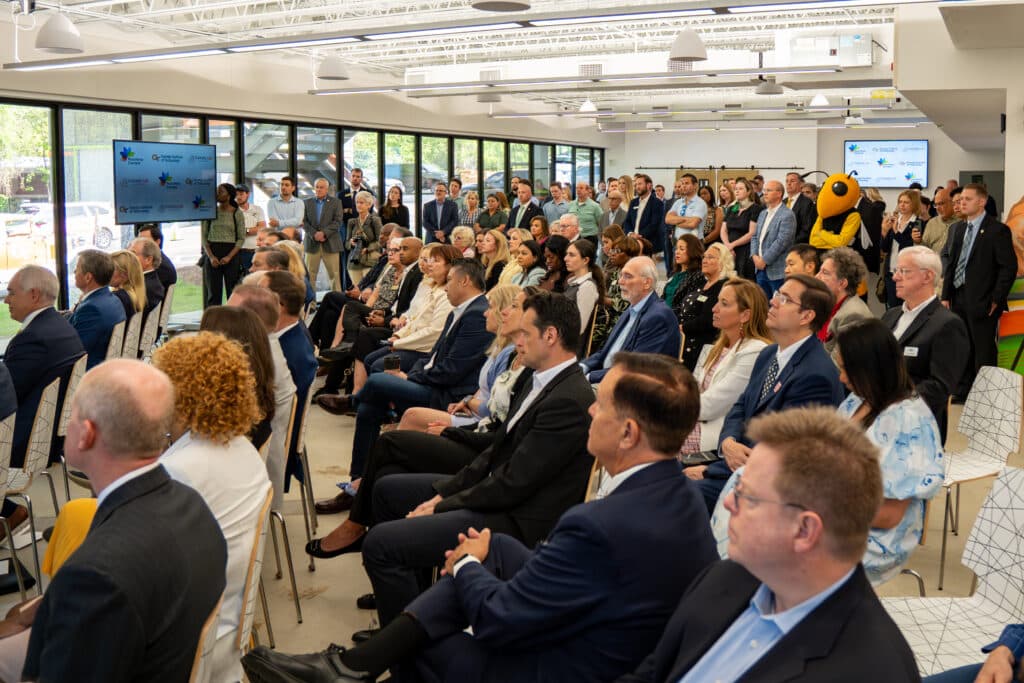
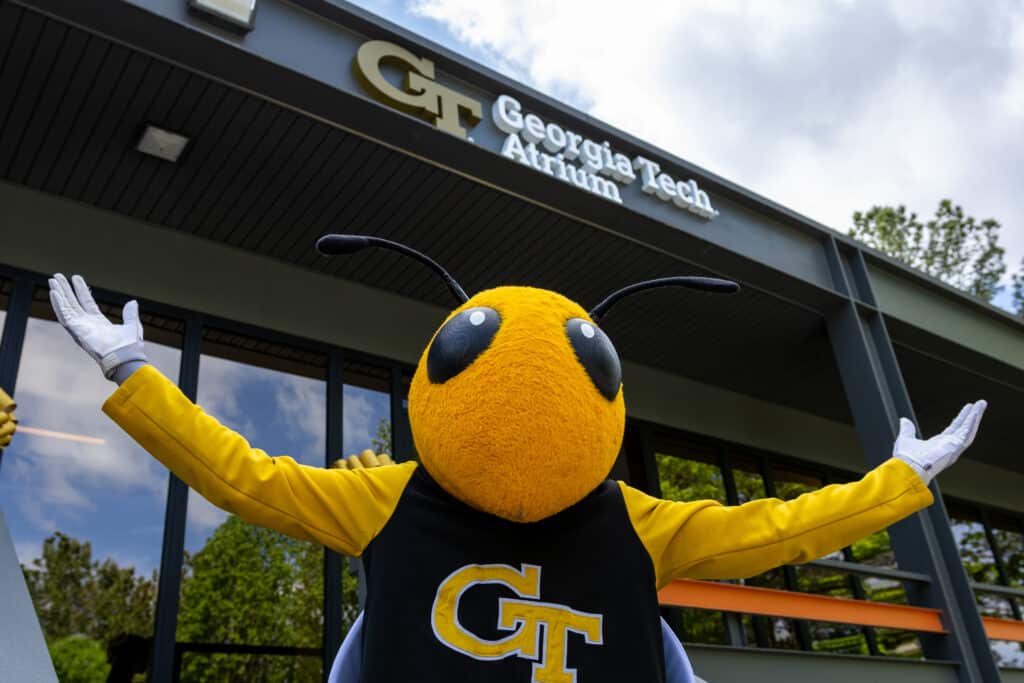
About Georgia Tech
The Georgia Institute of Technology, or Georgia Tech, is one of the top public research universities in the U.S., developing leaders who advance technology and improve the human condition.
The institute offers business, computing, design, engineering, liberal arts and sciences degrees, as well as professional development and K-12 programs for fostering success at every stage of life.
Its more than 53,000 undergraduate and graduate students represent 54 U.S. states and territories and more than 143 countries. They study at the main campus in Atlanta, at instructional sites around the world and through distance and online learning.
As a leading technological university, Georgia Tech is an engine of economic development for Georgia, the Southeast and the nation, conducting more than $1 billion in research annually for government, industry and society.
For more about the GT Atrium at Peachtree Corners, visit atrium.gatech.edu/peachtree-corners.
Gallery photos of the event courtesy of Curiosity Lab
Related
Smart City and Innovations
Opsys Collaborates with Curiosity Lab and City of Peachtree Corners to Launch Solid-State LiDAR Technology
Published
6 months agoon
November 11, 2024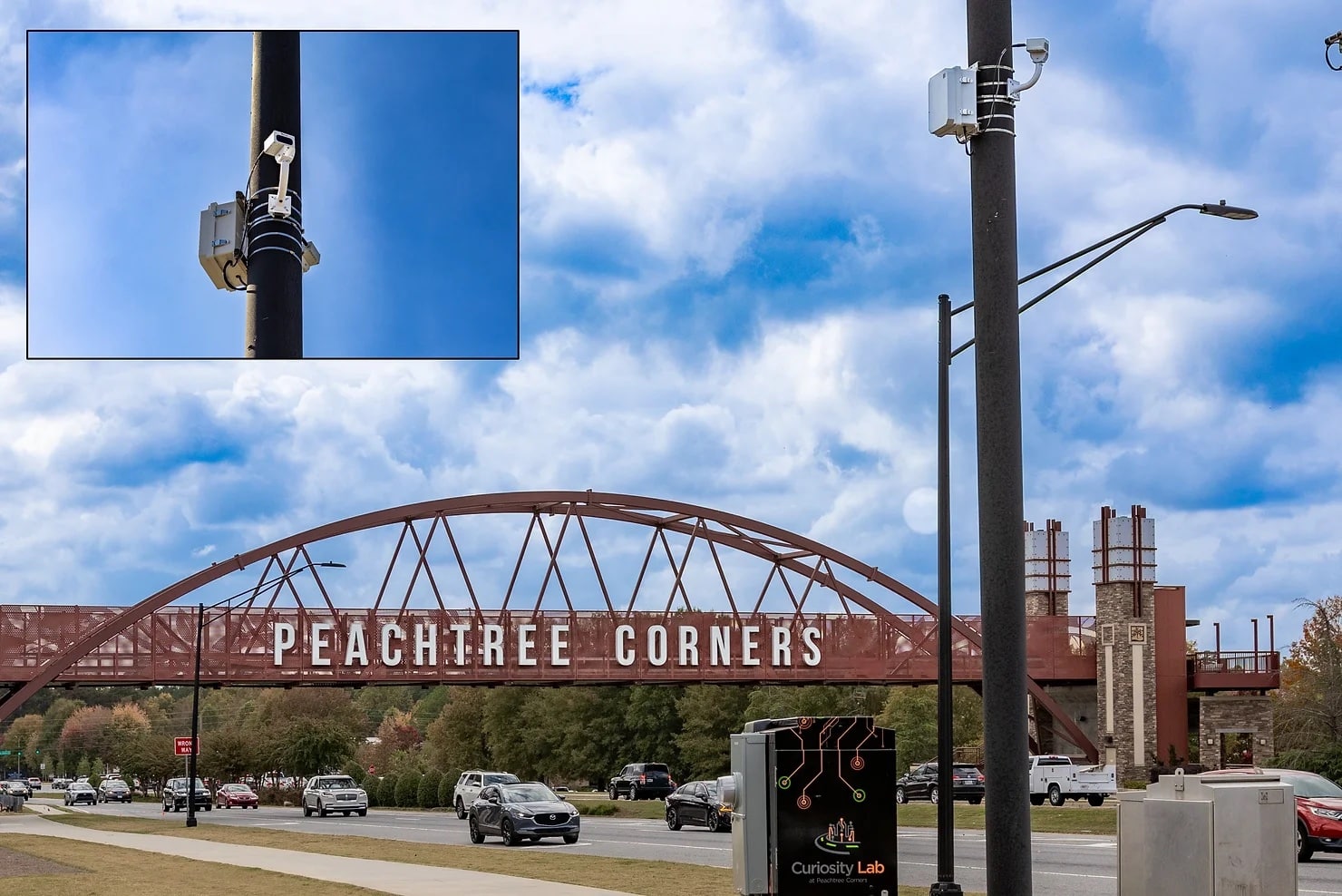
Curiosity Lab and Opsys showcased the technology live at Smart City Expo World Congress in Barcelona
The City of Peachtree Corners — one of the nation’s first smart cities powered by real-world connected infrastructure and 5G — recently collaborated with Opsys, developer of the world’s most advanced pure solid-state scanning LiDAR sensor, to launch and deploy the company’s Advanced LiDAR Technology Opsys Sensors (ALTOS) Gen 2 LiDAR at Curiosity Lab.
This marks Opsys’ first real-world deployment of the ALTOS, the company’s first deployment with a municipality and the company’s first deployment in the United States.
The ALTOS Gen 2
As a pure solid-state LiDAR, the ALTOS Gen 2 has no moving parts, enabling best-in-class performance with high resolution and extreme reliability with a 4D point cloud from the device’s specific field of view.
The pure-solid state characteristics make the unit more robust, avoiding mechanical failures associated with moving components and allowing the unit to have 24/7 operation and pass a 50g shock and full vibration test. The ALTOS Gen 2 brings a simple, customizable design to market that can be used for different applications and unique shapes with a low-power consumption, without sacrificing performance.
“The ALTOS Gen 2 represents the future of smart city technology,” said Rafi Harel, chief executive officer of Opsys. “This collaboration with Peachtree Corners and Curiosity Lab gives us the unique opportunity to showcase the reliability and efficiency of our pure solid-state LiDAR technology in a real-world environment, which will soon improve safety and traffic management for cities across the globe.”
“As our first real-world deployment and first U.S. deployment, we are looking forward to working with Peachtree Corners as our test and demo site to then launch into the U.S. market,” he continued.
Flexible design and cutting-edge technology
Opsys’ new technology boasts a higher partial differential equation (PDE) and a larger array than other models, which gives the unit improved detection range and a higher resolution of objects. The improved optics reduce unwanted light, while improving uniformity and enhancing illumination. In addition, the unit’s optimized ASIC/processor allows for advanced processing of data, as well as lower power dissipation and cost.
“Opsys’ technology was extremely easy to calibrate and deploy in our city,” said Brandon Branham, executive director of Curiosity Lab. “The simple, yet flexible design made it easy for set up, without the need of special custom cables or proprietary connectors. The device behaves like a normal network device which also made it easy for us to integrate into our single-pane-of-glass, smart city management systems.”
“By adding this cutting-edge technology into our infrastructure, we’re able to enhance safety and operational efficiency for our community while showcasing scalable solutions that other cities and industries can easily adopt,” Branham added.
Location and Details
The ALTOS Gen 2 LiDAR units are deployed in the City of Peachtree Corners at the intersection of SR 141 and Town Center Boulevard. Here, the ALTOS Gen 2 units provide precise, real-time data on traffic flow and pedestrian movements, offering significant enhancements to urban safety and traffic management.
Its ability to operate continuously while supporting PoE (power over ethernet) and auxiliary power make it adaptable for different municipal implementations and ideal for use across various industries including intelligent traffic systems (ITS), smart factories, robotics and public safety applications such as perimeter security and healthcare.
Smart City Expo World Congress, Barcelona
Opsys debuted the technology at the Smart City Expo World Congress in Barcelona November 5-7 in the Curiosity Lab booth. This included a demo with live LiDAR feed from the Peachtree Corners intersection. Representatives of Curiosity Lab and Opsys were also available for interviews at Booth D40 Hall 3 in the USA Pavilion.
For more information about Opsys, visit opsys-tech.com.
For more about the City of Peachtree Corners, visit peachtreecornersga.gov.
To learn more about Curiosity Lab, visit curiositylabptc.com.
Related
Smart City and Innovations
International Leaders Gather for 10th Annual SMART Community Exchange 2023 in Peachtree Corners
Published
2 years agoon
October 27, 2023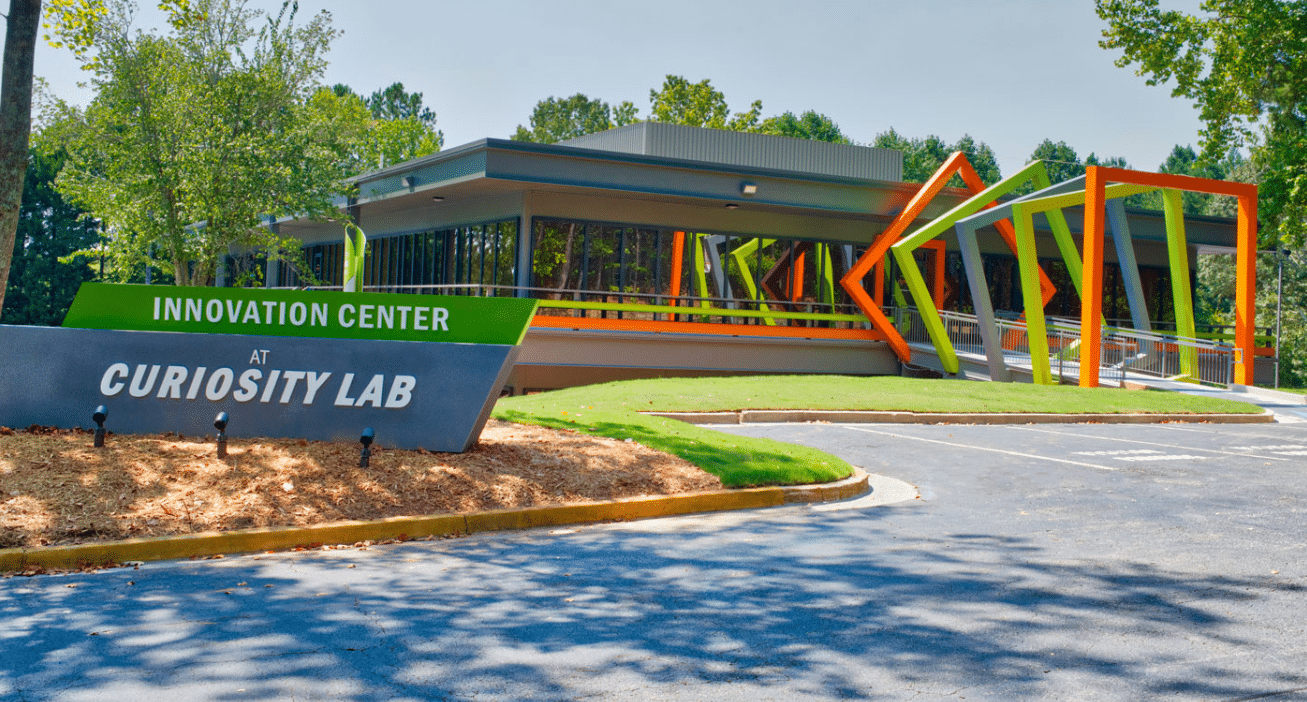
SMART Community Council has hosted SMART Community Exchanges across the U.S. and Europe during the past decade, engaging executives, investors, innovators and advisors in hot spots of technology innovation.
Strong technology cooperation and the initiative to make communities smarter get support on both sides of the Atlantic. Leaders face the same challenges and see partnership opportunities to test, prove, commercialize and implement SMART solutions.
The 10th Annual SMART Community Exchange brings together SMART leaders, entrepreneurs, technologists, innovators and investors. The event will take place on Monday, October 30, from 9 a.m. to 5 p.m. at the Curiosity Lab in Peachtree Corners.
The focus is on SMART-R (SMART + Resilient) Infrastructure, energy, mobility, transportation, frontier technologies, safety and security, health and wellness, education, finance and more.
Participants include delegates from enterprises and organizations, higher education institutions, federal, state, and local governments, economic development, industry, manufacturers, labor organizations and workforce development.
“There is so much potential for companies to grow business through strategic partnerships in the hot spots of tech innovation across the United States. Many of these ‘hot spots’ are SMART Communities, such as Peachtree Corners, Georgia, and the Curiosity Lab, co-host of the SMART Community Exchange 2023,” said Tana Torrano, co-founder of the SMART Community Exchange.
Curiosity Lab at Peachtree Corners is a 5G-enabled intelligent mobility and smart city living laboratory near Atlanta.
Designed as a proving ground for IoT, mobility and smart city emerging technologies, the lab’s centerpiece is a three-mile public autonomous vehicle roadway leveraging cellular vehicle-to-everything (C-V2X) technologies.
The ecosystem’s infrastructure includes intelligent traffic cameras and signals, smart streetlights, the country’s first “IoT Central Control Room” implemented in a city and a 25,000-square-foot innovation center.
The Curiosity Lab, owned and operated by the City of Peachtree Corners, is one of North America’s only real-world testing environments.
SMART technology broadens access to new opportunities and markets in tech-intensive economies and benefits communities, businesses, governments and citizens on both sides of the Atlantic.
“US-EU cooperation matters today more than ever. We share the same values and commitment to serve as a catalyst for joint innovation. … Together, we are stronger to face today’s challenges and reap the benefits in a fast-changing world where technology plays a critical role,” stated Minna LeVine, Chair of the SMART Community Council.
Interested in attending? Register here! Registration is $97 per person and includes lunch, programming, VIP networking and a tour of Curiosity Lab.
Related
Read the Digital Edition
Subscribe
Keep Up With Peachtree Corners News
Join our mailing list to receive the latest news and updates from our team.
You have Successfully Subscribed!

GA Tech Launches First-of-its-Kind GT Atrium in Peachtree Corners

Katherine Lafourcade — A Journey of Passion, Resilience and Giving Back

Digital Edition

PCBA Announces 2025 Scholarship Winner

Paul Duke STEM High School Student Earns CGO Scholarship

World Blood Donor Day Starts Here: Theo’s Miracle, Katherine’s Mission [Podcast]

Executive Function: A Tribute to Working Moms

Peachtree Corners Grows Business Opportunities Through Economic Development

Simpson Elementary Marks Exceptional Children’s Week

Executive Function: A Tribute to Working Moms

Official City Merchandise Line Debuts This Saturday at Town Green

Peachtree Corners Grows Business Opportunities Through Economic Development

Digital Edition

World Blood Donor Day Starts Here: Theo’s Miracle, Katherine’s Mission [Podcast]

Paul Duke STEM High School Student Earns CGO Scholarship

PCBA Announces 2025 Scholarship Winner

Light up the Corners [Video]

Capitalist Sage: Business Leadership in Your Community [Podcast]

Cliff Bramble: A Culinary Adventure through Italy

Top 10 Brunch Places in Gwinnett County

A Hunger for Hospitality

THE CORNERS EPISODE 3 – BLAXICAN PART 1

Top 10 Indoor Things To Do This Winter

The ED Hour: What it takes to Remove Barriers from Education

Peachtree Corners Life
Topics and Categories
Trending
-
Digital Edition4 days ago
Digital Edition
-
Podcast4 days ago
World Blood Donor Day Starts Here: Theo’s Miracle, Katherine’s Mission [Podcast]
-
Community2 days ago
Executive Function: A Tribute to Working Moms
-
Business3 days ago
Peachtree Corners Grows Business Opportunities Through Economic Development









